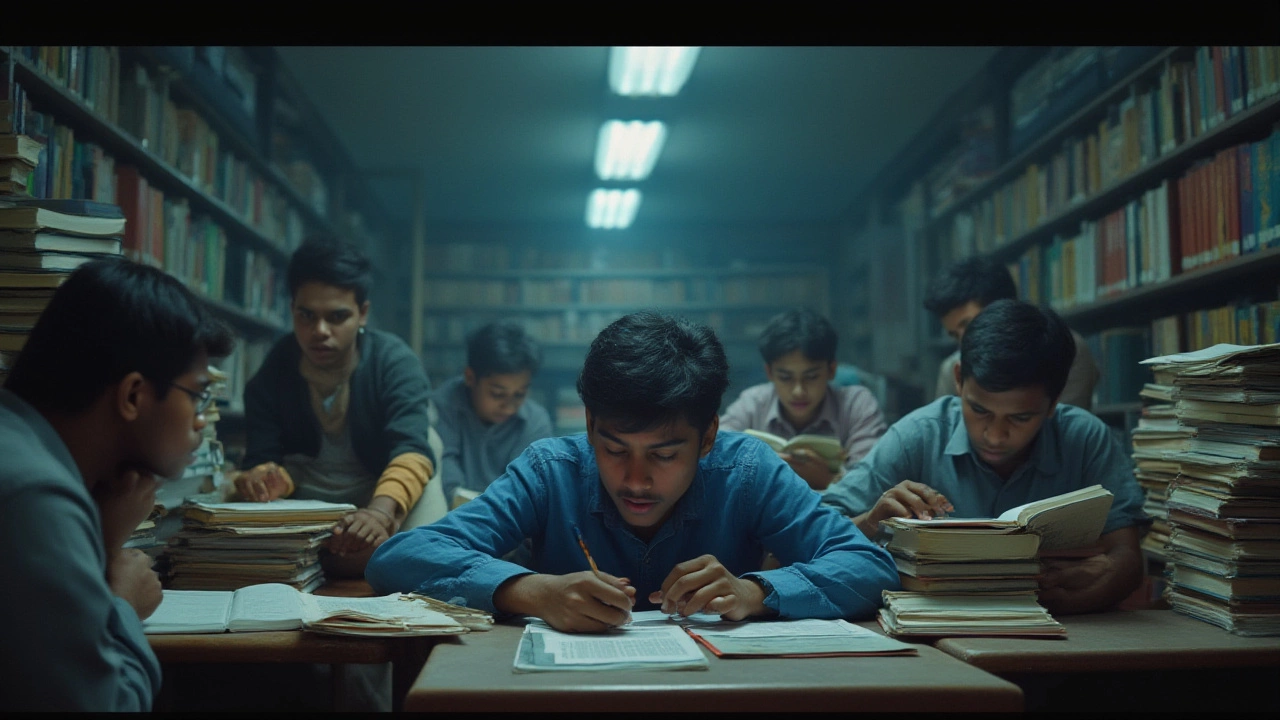Most Stressful Exam: What Makes an Exam Truly Tough?
When talking about the most stressful exam, an assessment that combines massive syllabus coverage, high stakes for future education or career, and intense time pressure, most people picture the panic of a single day that can decide a lifetime. It’s not just the number of questions – it’s the blend of uncertainty, competition, and personal pressure that turns a regular test into a marathon of stress. In India, the CBSE board exam, a nationwide school‑level assessment covering science, maths, and language is often called the first real taste of this pressure. The same logic applies to the IIT JEE, the engineering entrance test known for its rigorous problem‑solving and cutoff ranks and the NEET, the medical entrance exam that decides who can study MBBS or BDS across the country. All three share a common semantic triple: high‑stakes exam → massive syllabus → intense competition. Understanding this chain helps you see why anxiety spikes and what you can do to lower it.
Key Factors Behind Stressful Exams
First, the sheer breadth of content forces students into marathon study sessions. For the CBSE board, you’re juggling physics, chemistry, biology, maths, and language arts within a limited time. That breadth alone creates a mental load that most other assessments don’t have. Second, the outcome carries huge weight. Scoring well in the IIT JEE can secure a seat at a premier institute, which in turn opens doors to high‑paying jobs. The same high‑reward, high‑risk dynamic exists for NEET, where a few marks can mean the difference between a medical seat and a fallback option. Third, the competitive environment amplifies stress. When thousands of peers vie for the same limited seats, every practice test feels like a ranking battle. Finally, personal traits play a role. Research on exam personality type, the combination of traits like conscientiousness, neuroticism, and openness that influence study habits shows that students high in neuroticism tend to experience more anxiety, while those with strong conscientiousness cope better by planning ahead. The semantic triple here is: personality traits → study strategy → stress level. Knowing your own profile lets you pick tactics that fit you, such as breaking study blocks into 45‑minute intervals if you’re prone to burnout, or using active recall if you’re a visual learner.
All this context sets the stage for the collection of articles below. You’ll find a deep dive into the CBSE syllabus versus Dubai’s version, a comparison of the hardest professional licences to crack, tips on how personality influences exam performance, and strategies to memorize vast NEET syllabi faster. Whether you’re a school student wrestling with board exams, an aspirant eyeing IIT JEE or NEET, or a professional preparing for licensing tests, the resources here map directly onto the stress factors we just outlined. Use them to pinpoint where your anxiety originates, adopt the right study habits, and turn a "most stressful exam" into a manageable challenge.
What makes the Gaokao the world’s most stressful exam? Discover real stats, stories, and survival advice for students facing crushing academic pressure.
View More
